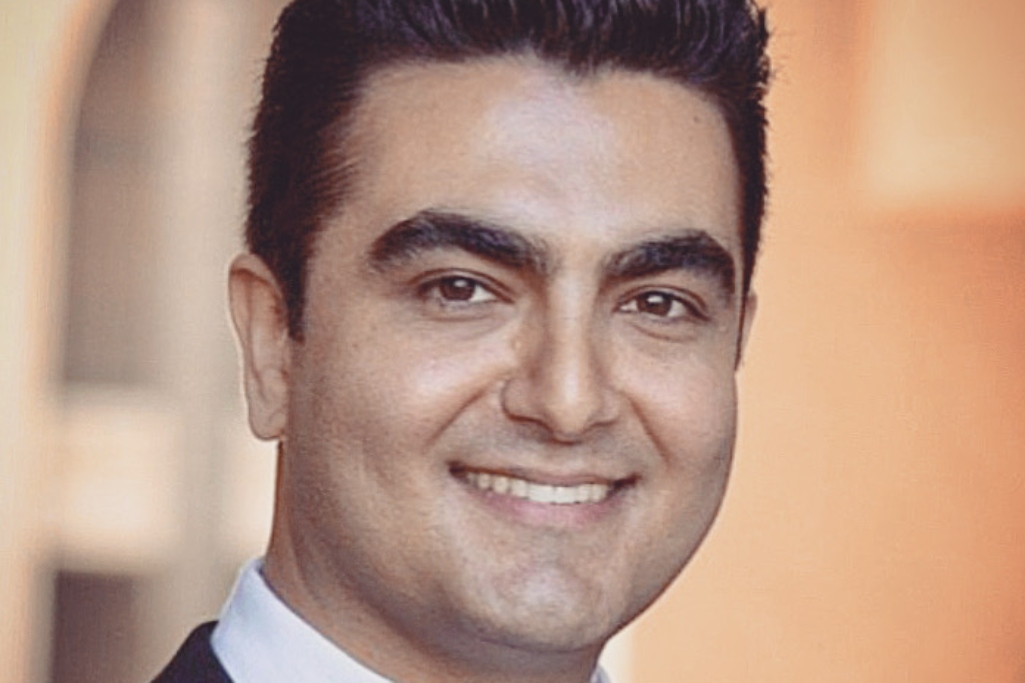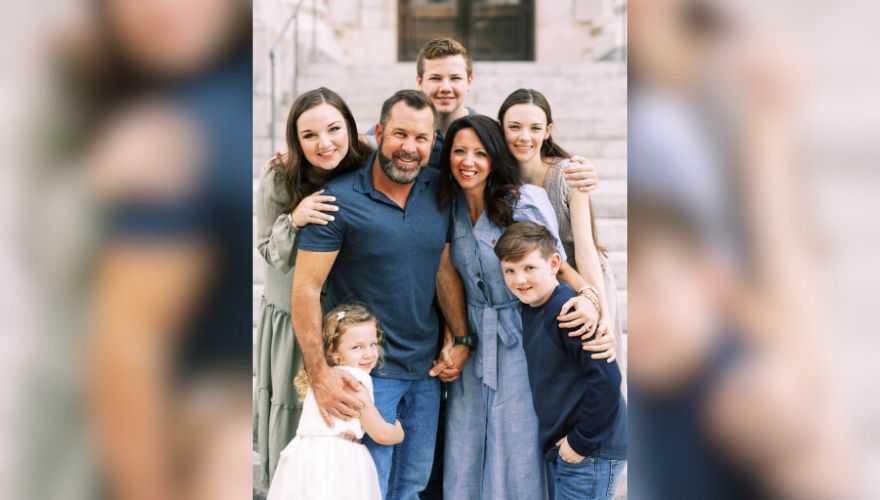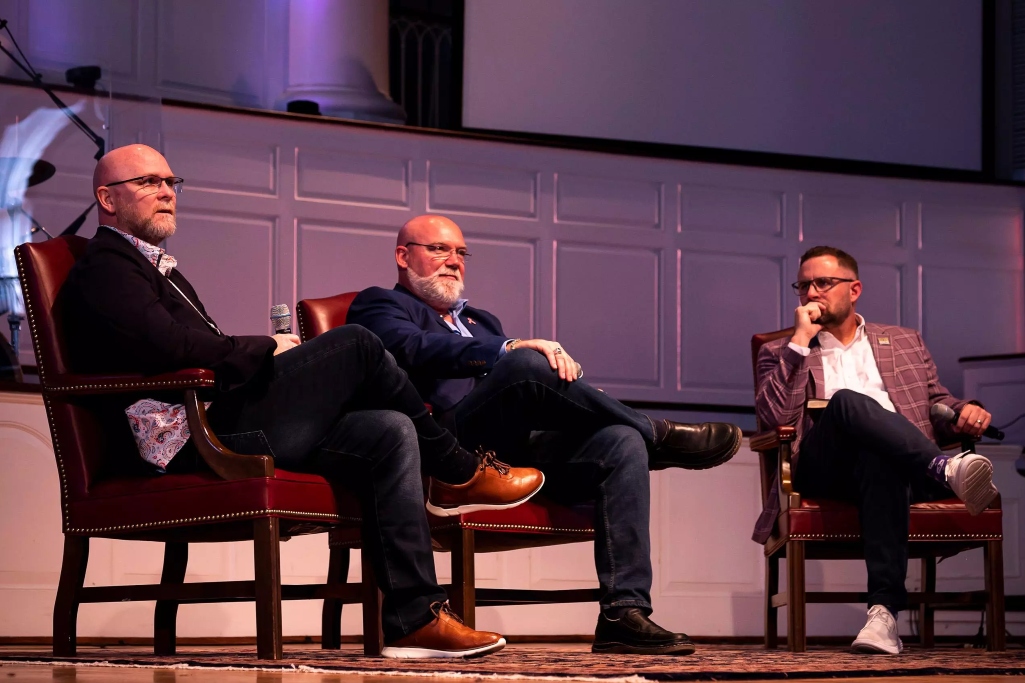
Nathan Rostampour
Nearly eight years after arriving in the United States as a refugee, Nathan Rostampour still reaches families in Central Asia with the gospel, raising up leaders among secret house churches in the region.
Leaders planted one of the churches among Afghan refugees in Iran. Since Afghan refugees arrived following the Taliban’s rapid takeover of Afghanistan in August, this church has sacrificially served their own people.
“They are refugees and leaders. Even many of our leaders have financial problems,” Rostampour said. “These are small churches, secret churches, but they have collected all these tithes and offerings and buy food for the new Afghan refugees in Iran.”
“Most of them are on the streets. They go out at night and offer them warm food and take care of them, share the gospel with them.”
Rostampour heard stories about people saved from addiction to alcohol and drugs, who are now leading others to Christ. A 97-year-old Muslim man recently put his faith in Jesus.
“God is reaching the young generation and also the old generation of Muslims in Iran through these house churches. … These are bold people, courageous, sharing the gospel with their friends and families, and these churches are growing.
“And honestly each time that I contact them to encourage them, they encourage me. They bless me.”
Please, our brothers and sisters, pray for us, because we are under a lot of pressure, a lot of spiritual attacks.
Central Asian church leaders
Rostampour grew up in a Muslim family in Tehran, Iran. When he was 17 years old, a relative who had recently become a Christian visited their home and shared the gospel. Something changed in his heart when he heard her recite Bible verses.
“The powerful Word of God just touched us,” he said.
He didn’t know anything about repentance, but he went to his room thinking about the scripture he heard.
“Suddenly I found myself on my knees,” Rostampour recalled. “As I looked up, I said, ‘Jesus, I know you are Lord. Save me!’”
The rest of his family soon came to faith, and they started attending secret house churches. For almost 10 years, Rostampour pastored similar churches in Iran. He would travel to other countries to attend conferences and intensive leadership and theology courses, then return home and teach the material to cell groups and house churches.
Today Rostampour is a member of The Summit Church in Durham, N.C., and Summit’s international partner to Central Asia. He is on staff at the Center for Great Commission Studies at Southeastern Baptist Theological Seminary and working toward a doctorate in ecclesial leadership from Regent University.
His primary goal is to equip the persecuted church for Kingdom advance. Rostampour and his wife, Azar, have a vision to see 31 house churches planted in Iran – one in each province – by 2030. That means, too, that they want to see 31 leaders trained to serve the churches. As of November 2021, Rostampour has helped plant 14 churches in six Iranian provinces.
The evangelical population in Iran is quickly growing, he said. “It’s an amazing opportunity for the church, in general, to reach Iran these days.”
In the spring of 2020, just as the COVID-19 pandemic began, the Rostampours felt called to facilitate online fellowship for house churches in Iran, Afghanistan and Tajikistan, including others led by other pastors.
On Sundays, he broadcasts worship services through Instagram, which is one platform not blocked in Iran. At the end of the service, he opens a chat box, where members fellowship virtually and share prayer requests. About 1,000 families tune in from their homes to join services and discipleship courses every week.
On Saturdays, Rostampour holds an online class through which he teaches discipleship and leadership concepts. He hosts multiple Zoom meetings and phone calls with house church leaders throughout the week to mentor, keep in touch with and pray for leaders in Iran.
“I really want to encourage our churches to invest in e-learning, especially for secret churches or persecuted churches because this is the only way that we can reach them,” he said.
“Some of the families – they are just one isolated believer and a computer or a cell phone … this is the only way that they can be equipped.”
‘Strategic, every day prayer’
North Carolina Baptists can support Rostampour’s ministry to house churches and leaders by contributing print resources, as well as financial support for leaders traveling to conferences and training sessions.
But Rostampour said Afghan and Iranian Christians only ask for more of one thing: prayer.
“‘Please ask the American church – our brothers and sisters – to pray for us, because we are under a lot of pressure, a lot of spiritual attacks,’” he relayed from church leaders.
“‘Not just one time prayer, please. We need strategic prayer. We need every day prayer, or every week at least … we need to feel that we have support.’”
Imprisoned believers told Rostampour that they felt less pressure when awareness about the persecuted church grew.
“‘Every time you guys talk about us, there is less pressure on us because the government knows that you are aware of this,’” Rostampour quoted.
“Talk about them more, remember them more.”
Rostampour publishes his sermons and training resources in Farsi on his website, nathanrostampour.com and on Facebook, YouTube and Instagram. You can follow him on Twitter at @n_rostampour.


